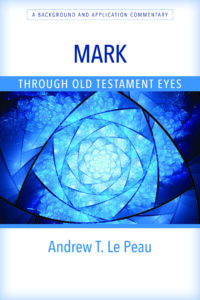While Peter was below in the courtyard, one of the servant girls of the high priest came by. When she saw Peter warming himself, she looked closely at him.
“You also were with that Nazarene, Jesus,” she said. But he denied it. “I don’t know or understand what you’re talking about,” he said, and went out into the entryway.
When the servant girl saw him there, she said again to those standing around, “This fellow is one of them.” Again he denied it.
After a little while, those standing near said to Peter, “Surely you are one of them, for you are a Galilean.”
He began to call down curses, and he swore to them, “I don’t know this man you’re talking about.”
Immediately the rooster crowed the second time. Then Peter remembered the word Jesus had spoken to him: “Before the rooster crows twice you will disown me three times.” And he broke down and wept. (Mark 14:66-72)
 In Shusaku Endo’s novel Silence the Jesuit priest Father Sebastian Rodrigues is sent to Japan in 1638. His assignment is to investigate reports that Father Ferreira, who had previously been sent by the Jesuits as a missionary to Japan, had under torture denied his faith.
In Shusaku Endo’s novel Silence the Jesuit priest Father Sebastian Rodrigues is sent to Japan in 1638. His assignment is to investigate reports that Father Ferreira, who had previously been sent by the Jesuits as a missionary to Japan, had under torture denied his faith.
The novel is based on Japanese history, in which a thriving Christian community grew to 300,000 in the late 1500s. But severe repression all but wiped out the faith. Each year those suspected of holding Christian sympathies were forced to walk on a brass image of Christ, a fumie, or face torture. Thousands complied, some of whom nonetheless continued practicing their faith secretly.
We read how Father Rodrigues is forced to enter the country secretly, and barely survives with the help of some hidden Christians. But eventually he is captured, having been betrayed by Kichijiro, one of the hidden Christians who had given him aid. While a prisoner, the priest finally meets Father Ferreira who urges him to walk on the image and deny his faith. If he does, not only will he be spared torture, but the jailers will stop torturing innocent Japanese whose cries of pain Rodrigues hears in the night. As the priest struggles, the Christ in the image speaks to him, “Trample! It was to be trampled on by men that I was born into this world. It was to share men’s pain that I carried my cross.” And the priest puts his foot on the image.
But this is not the end. Though the priest remains under house arrest for the remainder of his life, he continues to pray, sometimes struggling with God’s silence, and thinks of himself as “the last priest” in Japan. We also have hints in the final pages that some in his household continued as secret Christians.
Endo’s novel, known worldwide, leaves us with many profound questions. Was Father Rodrigues right to obey the words from the image, to end the torture of innocent people? Was this actually a “most painful act of love”? What does faithfulness mean in impossible circumstances? What are we to make of the apparent silence of God in the face of such severe persecution? Can we be forgiven and continue in faith even after betraying Christ?
We may judge Father Rodrigues, but should we not also remember that we have all betrayed Christ? Whenever we have been unjustly angry with others, withheld money from those in need, failed to keep a confidence, kept silent in the face of racism–we have also betrayed Christ. If we judge Father Rodrigues, we judge ourselves.
 And is forgiveness possible for him and for us? And, to the point of this episode in Mark, is forgiveness possible for Peter? He was warned by Jesus ahead of time to be on guard, but he wasn’t. He was specifically told three times in Gethsemane to stay awake and pray, but he didn’t. He was given three opportunities in the high priest’s courtyard to identify with Jesus, but he didn’t.
And is forgiveness possible for him and for us? And, to the point of this episode in Mark, is forgiveness possible for Peter? He was warned by Jesus ahead of time to be on guard, but he wasn’t. He was specifically told three times in Gethsemane to stay awake and pray, but he didn’t. He was given three opportunities in the high priest’s courtyard to identify with Jesus, but he didn’t.
Not until after the resurrection do we find the answer. There we hear the words of forgiveness, of restoration–“and Peter.” At the tomb the women hear the words of great news and instruction from the mysterious white-robed man: “He has risen! He is not here. See the place where they laid him. But go, tell his disciples and Peter, ‘He is going ahead of you into Galilee. There you will see him, just as he told you” (Mark 16:6-7). And Peter. Peter stood out for his brash confidence and his vulgar betrayal. Now he is singled out for grand reunion with Christ.
Yes, we too betray our Lord. But we too are singled out to be lovingly embraced by him with the openhearted offer to continue following him to Galilee and beyond.
Each Wednesday until Easter I am posting a Lenten reflection, excerpted and adapted from Mark Through Old Testament Eyes. Used by permission of the publisher.

One thought on “Betrayal and Grace”